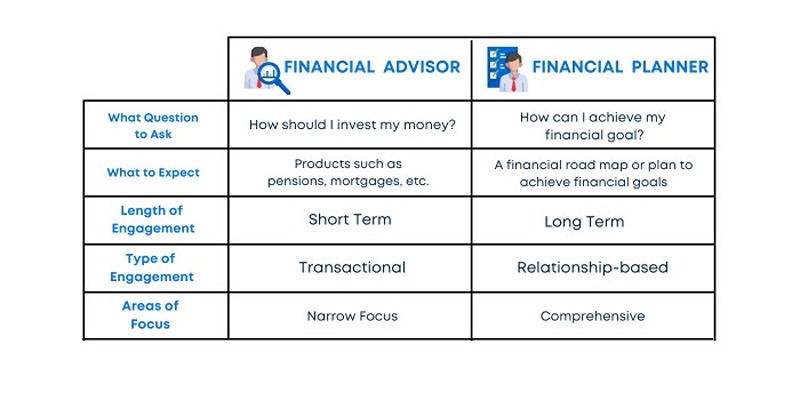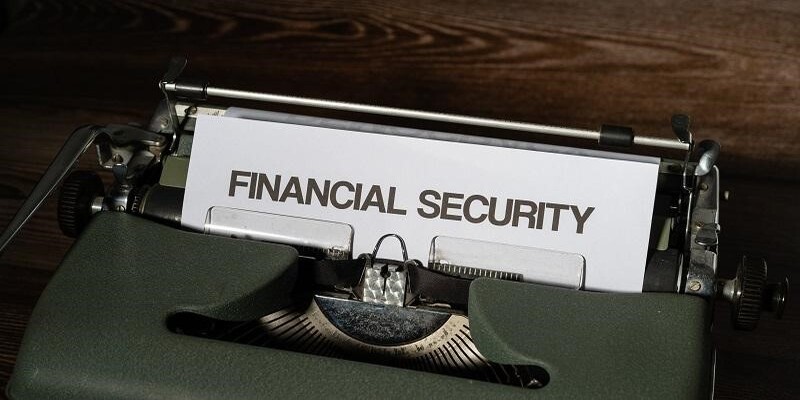How To Use Your Roth IRA as an Emergency Fund
Are you looking for ways to secure your financial future? Do you often find yourself strapped for cash during emergencies or income instability? Setting up a Roth IRA as an emergency fund may be the perfect solution.
A Roth IRA lets you save money tax-free and provides access to those funds when a significant amount of money is needed suddenly.
This blog post'll explain how to use your Roth IRA as backup funding for unexpected costs and discuss several good investment options to maximize its potential. Whether it's medical bills, surprise travel expenses, extra living costs, or anything else.
Read on and discover all the amazing benefits of using a Roth IRA as your financial backup plan.
Quick Recap: Roth IRA Rules
A Roth IRA is a type of individual retirement account that enables tax-sheltered retirement savings. Your Roth IRA contributions are not immediately tax deductible, but all investment earnings and withdrawals are exempt from federal income tax.
You must meet certain requirements to be eligible to use a Roth IRA as an emergency fund. First, you must have a taxable income of less than $137,000 per year if filing as a single filer or $203,000 if filing jointly.
Additionally, the total annual contribution limit for your Roth IRA is $6,000 (or $7,000 if you're over age 50). You can use the Backdoor Roth IRA strategy if you make too much money to contribute directly to a Roth IRA.
Roth IRA Withdrawals

When it comes to withdrawals, there are two important rules to understand. First, you can take withdraw your contributions anytime without penalty or tax consequences (this is why it is an excellent emergency fund).
Second, you can withdraw your Roth IRA earnings without being taxed or penalized if the funds have been in the account for at least five years and you're at least 59 1/2.
If you withdraw early before both criteria are met, you will be subject to taxes and a 10% penalty on the earnings.
Use as Emergency Fund
You should know some key considerations when using your Roth IRA as an emergency fund. First, you can only withdraw contributions you made to the account without penalty. If you need to access funds from growth earnings, there are potential taxes and penalties associated with doing so.
Second, using a Roth IRA in this way will limit the amount of money you can save for retirement. Withdrawing funds from the account early will reduce your nest egg. You should only use the Roth IRA as an emergency fund if other options are unavailable and the money you withdraw is necessary.
Third, be sure to factor in the time it takes to access your funds when planning how much of an emergency fund you need. After withdrawing, the money can take several days to reach your bank account, so plan accordingly.
Finally, it’s important to realize that this isn’t an ideal approach as you forfeit the tax benefits of the Roth IRA by withdrawing funds early. Of course, if you have no other options, it may be necessary to withdraw funds from your Roth IRA in an emergency.
Just make sure you understand the potential risks and consequences before doing so.
Structuring for Emergencies
Creating a Roth IRA is the first step towards using it as an emergency fund - but how should you structure it? Generally, experts recommend that you keep three to six months of living expenses in your Roth IRA. This can provide a cushion in case of job loss, illness, or any other emergency requiring quick cash access.
When setting up your Roth IRA, you should diversify your investment options to reduce the risk of any one security tanking in value. You can invest in stocks, bonds, ETFs, and mutual funds. This will ensure that if one security dips in value, other assets can help offset the loss.
Withdrawing Rolled-Over Funds

Any funds rolled over from one Roth IRA to another are eligible for a qualified distribution, meaning you can do withdraw them without penalty. However, certain rules and restrictions must be followed to take advantage of this option.
First, any withdrawals made before the five-year mark will be subject to income taxes; the amount of taxes you will owe depends on the amount withdrawn and your current tax bracket.
It’s important to note that you can only make one rollover in twelve months, and if the funds are not used for a qualified expense, then you will be subject to taxes and early withdrawal penalties.
To avoid these expenses, it’s important to understand what constitutes a qualified expense before withdrawing from your rolled-over Roth IRA.
The IRS also limits the number of Roth IRA contributions you can make in one year, so depending on your circumstances, you can access the funds without incurring penalty charges.
How to Withdraw Roth Funds
If you are in a financial emergency and need to withdraw funds from your Roth IRA, there are a few important things to remember.
First, if your Roth IRA has been open for less than 5 years, any contributions you withdraw will be subject to taxes and an early withdrawal penalty of 10%. To avoid this penalty, you must wait until the 5th anniversary of opening your account.
If your Roth IRA has been open for over 5 years, you can do withdraw contributions and earnings without incurring any taxes or penalties. It is important to note that all withdrawals from a Roth IRA will count towards this limit, even if it is within the same year.
It is also worth considering the other potential withdrawal rules associated with Roth IRAs. For example, if you are under 59 ½ years old and make an early withdrawal of more than $10,000 from your Roth IRA for a first-time home purchase within two years of opening it, you will be subject to a 10% penalty.
FAQs
Can I use a Roth IRA as an emergency savings?
Yes, you can use a Roth IRA as an emergency savings account. If you follow the plan's rules and do not exceed your age's maximum annual contribution limits, you may withdraw funds from your Roth account without penalty or taxation. However, before drawing upon your Roth funds, it’s important to consider other options available to help meet your financial needs.
How may I make a penalty-free withdrawal from my Roth IRA?
You cant take withdraw money from your Roth IRA without penalty if the withdrawal is made for a qualified expense. Qualified expenses include certain medical, educational, first-time homebuyer, and funeral expenses, among other things.
Can you take money out of IRA for emergencies?
You can take money from a traditional or Roth IRA for emergencies. However, there may be tax implications involved in such withdrawals, and you should consult a financial professional before making any decisions about withdrawing funds from your retirement account. Generally speaking, no penalties will apply if the withdrawal is taken for qualified expenses (as described above).
Conclusion
Roth IRAs can be incredibly useful for saving and withdrawing funds, depending on the individual's needs. Withdrawing from or using a Roth IRA as an emergency fund is far less complicated than many may think.
By understanding the rules for withdrawals, setting up the account with emergency funds in mind, and filing the relevant forms, one has already taken important steps towards using their Roth IRA as an Emergency Fund.
On this page
Quick Recap: Roth IRA Rules Roth IRA Withdrawals Use as Emergency Fund Structuring for Emergencies Withdrawing Rolled-Over Funds How to Withdraw Roth Funds FAQs Can I use a Roth IRA as an emergency savings? How may I make a penalty-free withdrawal from my Roth IRA? Can you take money out of IRA for emergencies? Conclusion
By Kelly Walker : Jun 30, 2023
Wells Fargo Business Secured Credit Card Review
Find out wells fargo business secured credit card reviews and ratings to know if it is worth it and whether you should apply for a wells fargo business secured credit card
Read More
13844

By Aldrich Acheson : Sep 05, 2024
Picking the Best Bank for You: A Practical Approach to Making the Right Choice
How to choose the best bank for your needs in 2024 by evaluating key factors like fees, customer service, digital tools, and more. Make informed banking choices
Read More
15361

By Kelly Walker : Jun 03, 2023
T. Rowe Price Review
Learn how T. Rowe Price can help improve your financial future with its portfolio management and investing services. Our expert review will provide valuable insight into navigating the world of investments and securing a better retirement plan for yourself!
Read More
601

By Kelly Walker : Jan 28, 2023
Should You Buy a House at Auction?
Purchasing a home through an auction can be a great way to secure a property at a good price. However, there are risks associated with the process that must be taken into account. Before bidding on a property, it is important to research and ensures all paperwork is in order.
Read More
3534

By Kelly Walker : Apr 21, 2023
How Bankruptcy Affects Your Ability to Secure Credit
Are you facing financial difficulties? Learn how declaring bankruptcy can and cannot affect your ability to secure credit in the future. Get expert advice on how to make sure you remain financially secure while going through this process.
Read More
2874

By Rick Novak : Mar 29, 2023
Top Agriculture Stocks 2023
The top agriculture stocks for investors to consider focus on companies with a strong market position, innovative products, and a commitment to sustainability. The ten companies highlighted in the article include Archer-Daniels-Midland Company, Deere and Company, Nutrien Ltd., Bunge Limited, Corteva, Inc., Agrium Inc., Monsanto Company, Syngenta AG, Mosaic Company, and Zoetis Inc. Investing in these companies can provide exposure to the agriculture sector and the potential for long-term growth.
Read More
1473

By Kelly Walker : Jun 28, 2023
Best Students Credit Cards Of 2023: A Detailed Guide
Get the most out of your college experience by choosing the best student credit cards. We compare and review the top picks so you can make an informed decision.
Read More
866

By Kelly Walker : Mar 30, 2023
Financial Planner vs. Financial Advisor: What’s the Difference?
Have you ever wondered about the difference between a financial planner and a financial advisor? Find out here! Learn which type of professional to turn to for help so that you can make informed decisions about your finances.
Read More
17135

By Kelly Walker : Apr 19, 2023
How to Check Points on your Driving License?
This article will discuss the basics of driver's license points and what you need to know to avoid accumulating points on your driving license.
Read More
6691

By Rick Novak : Jun 28, 2023
M1 Finance Review: An Overview
For experienced investors who favor a low-cost customized portfolio solution, M1 Finance is a wonderful choice. The main customization method is screening and choosing from 60 pre-built investment portfolios or developing your own. The borrowing and spending options offered by M1 Finance may appeal to investors looking for more product possibilities in a platform.
Read More
7993

By Kelly Walker : Mar 26, 2023
What Are Best Endeavors?
Do you have big dreams and goals but need to know how to get started? Read our article to learn about the best endeavors, their meaning, and the benefits they bring so you can start progressing toward your success story.
Read More
4571

By Kelly Walker : Aug 11, 2023
Cracking the Depreciation Code
Learn how to calculate depreciation and help yourself manage your finances. We have listed down multiple formulas by which you can confidently calculate your depreciation
Read More
18394